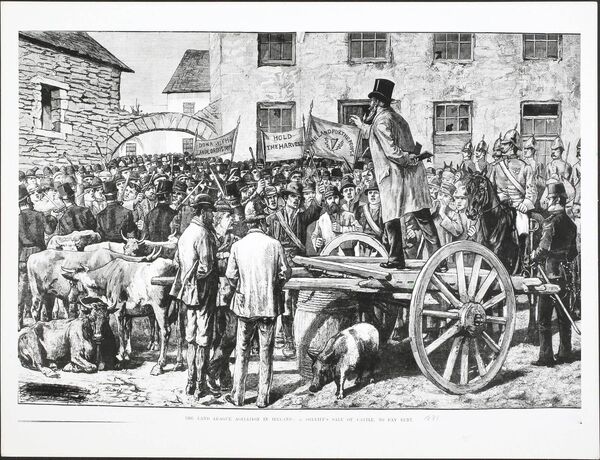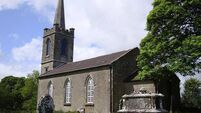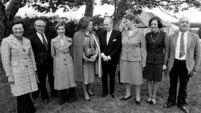A political activist and champion of the poor

Fr Denis O'Hara left a lasting legacy in Kiltimagh and the wider western region.
The old parochial house in Cloonacool is now a private residence. It served as the local priest’s residence for many years but when originally built, it was the property of the O’Hara family - the parents and six children. Of the five brothers in the family, two of them, Denis and Roger, became priests and one of those brothers in particular, Fr Denis, holds a very special place in local history.
Denis O'Hara was born at the foot of the Ox Mountains in the 12-month period following April 1850. His father was reputed to have been a comfortable farmer and Denis received his early education in Cloonacool National School and later attended a Latin school attached to St Nathy's Cathedral in Ballaghaderreen. He entered Maynooth College in 1867 and was ordained in 1873.
After ordination, Fr Denis was appointed curate in the parish of Kiltimagh where he remained for two years. Over the course of the following years, he took up various posts throughout the Diocese of Achonry, but returned to Kiltimagh as parish priest in 1888.
Fr Denis, while not having experienced hunger or poverty himself, was nonetheless influenced with the poverty he had seen as a child. In addition to this, the hardship experienced by tenant farmers in his various parishes at that time was of particular concern to him, both as a priest and as a humanitarian.

The following passage gives some idea of the passion and energy that possessed Denis O’Hara. It is clear that, as well as having a political mind, he had ambitions for his flock that went far beyond their spiritual wellbeing.
The Plan of Campaign was a strategy adopted in Ireland between 1886 and 1891, co-ordinated by Irish politicians for the benefit of tenant farmers. It was a campaign against mainly absentee landlords and was launched to counter distress in the farming community caused by a continual fall in the prices of dairy products and cattle from the mid-1870s.
This depression had left many tenants in arrears with rent. In addition, bad weather in 1877 and 1878 caused significant crop failure, making it even harder to pay rents. O'Hara was now active in the Plan of Campaign and was in fact described as its ‘Clerical Captain-General’.
Kiltimagh’s tourism website says in a piece about Fr Denis that the event which had the greatest impact on Kiltimagh was his appointment there as parish priest.
The Congested Districts Board for Ireland was established by Arthur Balfour, the Chief Secretary for Ireland, in 1891 to alleviate poverty and congested living conditions in parts of the west and northwest of Ireland.
Fr Denis quickly became associated with the Congested Districts Board - despite not becoming a full member until 1910. He is credited with creating the Parish Committee Scheme in 1897. This was soon adopted by the board and by 1906 had spread to eight counties from Donegal to Kerry, with a total of 159 committees. The object of the scheme was to induce tenants to make improvements in their holdings, dwellings, and outhouses, by awarding prizes or grants. This was done through a local committee rather than through the more unwieldy board.
Next on Fr Denis O’Hara’s list of things to do was the training and teaching of the youth of his parish. In 1897, Fr Denis invited six sisters from the St Louis Convent in Co Monaghan to help establish such a facility. They initially set up a school for young women to teach cooking, cleaning, and religion. In 1908, this school became, primarily, a boarding school for girls. The school prospered with students winning prizes on a national scale for lace-making and proficiency in the Irish language.
Fr O'Hara remained parish priest of Kiltimagh for 34 years. The town, while described at the time of his arrival as, “a forlorn dirty village”, was later mentioned in 1915 as “one of the most advanced towns of its kind in Ireland”.
Fr Denis O’Hara never retired but passed away, while still fully engaged in his parish duties. Instead of being buried on church grounds, as was the custom, his final wish was that he be buried with his townspeople in the parish graveyard. He was a man renowned for his generosity and was devoted to the poor throughout his life. He passed away in 1922 without a penny to his name.
- The information provided in this piece was drawn from two main sources: Frank McCarrick's (BA thesis, Maynooth, 1972) and Liam Swords' (Dictionary of Irish Biography, 2009).




